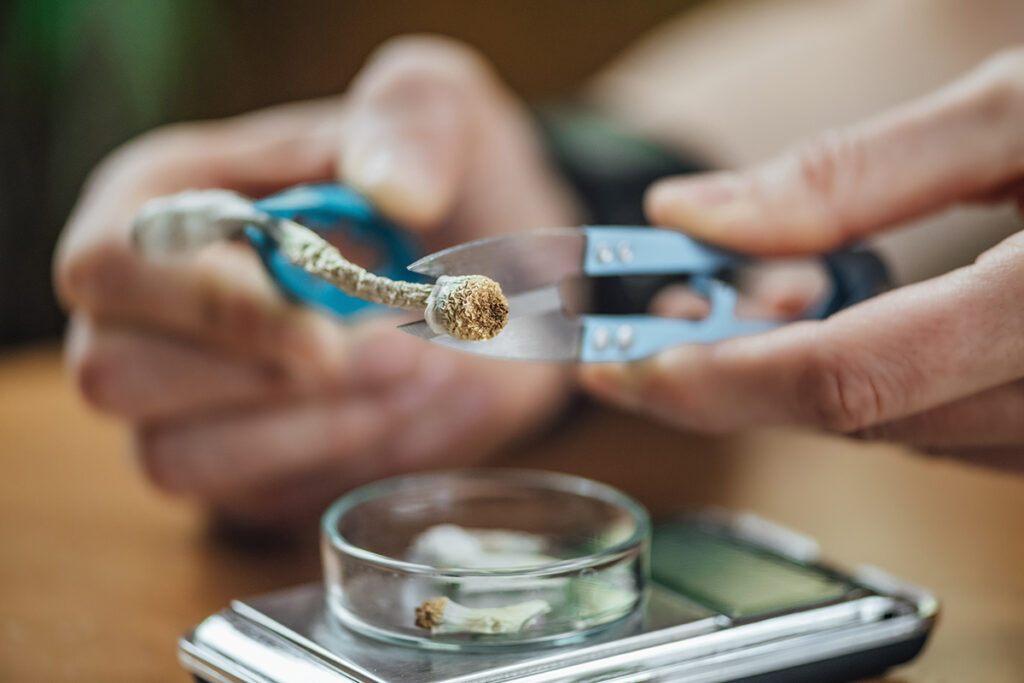Behavioral health experts have always strived to help people deal with the potentially devastating effects of depression. In the wake of the pandemic, their job has become that much more difficult. The recent developments of ketamine therapy and psychedelic clinics may provide an answer, and ketamine therapy digital marketing can help reach those who need you most.
How these two areas develop in the near future could shift some priorities in behavioral healthcare marketing.
What is Ketamine Therapy Digital Marketing?
Ketamine therapy has been getting more and more attention. In recent years, ketamine has been increasingly used to remedy mood disorders, reduce suicidal thoughts and alleviate chronic pain symptoms. For clinics using ketamine therapy, a digital marketing strategy is essential for connecting with new patients. It should include components such as search engine optimization (SEO), pay-per-click (PPC) advertising, and helpful web content.
What is Ketamine Therapy?
Ketamine is widely viewed as an effective anesthetic. In fact, the World Health Organization indicates that ketamine is the most widely used anesthetic around the globe.1 Many therapists are looking far beyond its anesthetic properties, though. They see ketamine as a versatile drug that can reduce the effects of PTSD and depression.
It’s also worth noting that ketamine actually works on the physical level, assisting in repairing damage done to the central nervous system. This is a key reason we’re likely to see this kind of therapy on the increase in the behavioral healthcare field.
Ketamine Therapy as a Viable Addiction Treatment Modality
In dual diagnosis treatment at addiction treatment centers, ketamine therapy and ketamine clinics have already begun to appear. As an antidepressant, ketamine is very attractive, because many antidepressants take weeks to finally kick in. By contrast, ketamine can alleviate depression symptoms within hours. Of course, not all patients respond to the drug. But when they do, the effect can be a game-changer.
Using ketamine therapy as a treatment for depression has been a long time coming. Although the properties for relieving depression were first identified 20 years ago, a component of ketamine (esketamine) was approved by the FDA for treating depression only recently.2
As ketamine therapy becomes more accepted, it becomes the first stepping stone toward using psychedelics to treat other mental health issues. As a result, psychedelics are likely to have a greater presence in behavioral healthcare within the next year or two.
The truth is that psychedelic clinics are about to make their presence known. Some ketamine clinics are getting ready to make MDMA and psilocybin available once they become legally prescribed substances. This will be sooner than some people realize. MDMA is expected to become legal in the coming years. Psilocybin for depression may become legal shortly after.
This means behavioral health centers need to develop their digital marketing strategies now.
Look for Psychedelic Clinics to Pop Up… and Soon
The FDA is moving forward at a rapid pace toward the approval of psilocybin as a treatment for major depressive disorder (MDD). The hallucinogenic substance in magic mushrooms has received “breakthrough therapy” status.3 As a result, it could soon find itself an established part of the treatment landscape.
Phase 3 trials kicked off in October 2022.4 Once those trials are successfully completed, psilocybin is believed to have a one-in-three chance of gaining approval, given the history of treatments that have earned breakthrough therapy status.
Just how important will psychedelic clinics become in the future? Well, there’s every reason to believe the US could have as many as 6,000 psychedelic clinics in operation by 2030.
Given the potential of ketamine, psilocybin, and other psychedelic treatments, it’s time to start forming an automated marketing strategy. You’ll get ahead of competitors and attract patients as soon as these treatments become legal.
Ketamine Clinic Marketing: Challenges & Possibilities
Marketing ketamine therapy and psychedelic clinics is an important conversation. There are many ways that psychedelics could emerge as a significant new innovation in treatment. But the market can go south if ketamine therapy digital marketing isn’t handled correctly.
There’s one issue that healthcare professionals are all too familiar with.
“The addiction treatment space has had its share of dishonest players who tarnish the industry’s reputation,” says Dan Gemp, CEO of Dreamscape Marketing.
He feels that the same people who don’t hesitate to traffic patients will likely take the wrong approach to psychedelics as well.
“There’s the danger that these less-than-ethical centers could overhype ketamine due to a lack of oversight,” says Gemp. “If the marketing of some centers doesn’t take an ethical approach, any legitimacy that psilocybin has may be compromised just as things are getting off the ground. At that point, the best efforts by accredited facilities could get lost in the shuffle when bad-faith practitioners start getting bad press.”
In terms of marketing, negative ideas about ketamine therapy and psychedelic clinics will have to change. And ketamine therapy and psychedelic clinics will need to be positioned without any hint of a hippie remnant of the 1960s. Instead, these treatments must be branded as reliable healthcare innovations that integrate seamlessly with modern therapy techniques.
“With the advent of ketamine therapy and psychedelic clinics, a lot of websites are going to need to add a lot of new content,” says Gemp, “and I don’t mean a single landing page saying you offer it and that’s it. There needs to be supporting blogs and videos that showcase an important addition to the behavioral healthcare landscape.”
How to Develop a Ketamine Therapy Digital Marketing Strategy
Curious about what’s going on in the world of digital marketing for addiction treatment centers? Want to get a head start on your psychedelic treatment marketing strategy? Dreamscape Marketing can help. Schedule a strategy session with us by calling 888.307.7304.
For a list of references, please contact us.
Editor’s Note: This article was originally published in January 2021 and has been updated for accuracy and comprehensiveness.







